Sacrifice
The Cosmic Virtue that Sustains This UNIVERSE
The Cosmic Virtue that Sustains This UNIVERSE
Musings by Prof. G. Venkataraman
 |
This is the adapted transcript of a talk delivered by Prof. G. Venkataraman on Radio Sai in the last week of February 2011, a couple of days before Shivarathri. In this article, the author convincingly explains how the virtue of sacrifice is at play, consciously and unconsciously, at various levels in God's creation. Through the messages of Bhagavad Gita and the life and teachings of Bhagawan Baba he goes on to explain how this sacred virtue which is embedded in this universe ought to be an indelible part of our lives.
At the outset, I would like to offer my humble pranaams to our most beloved Bhagawan.
Loving Sai Ram and greetings from Prasanthi Nilayam. Today I would like to reflect on a topic that receives very little attention these days, although now is when we should be fully charged by it; and that topic is SACRIFICE.
 |  |  |
Most people regard sacrifice as a bitter pill to swallow, even if it has a sugar coating. What we fail to realise is how much the life of every one of us depends on sacrifice. I am here talking of the difficulty and pain that all mothers go through before giving birth. Even in the case of normal birth, the last stage of pregnancy is always a bit tough and demanding for the expectant mother, because of one simple physical fact.
We all know that breath is the very essence of life. Where the expectant mother is concerned, she has to actually breathe for two, for her own self and for the baby she is carrying. Initially, the demands of the growing baby for oxygen are quite modest and the mother is able to manage reasonably well. But towards the end of pregnancy, the expectant mother finds that breathing for two becomes increasingly difficult; that is why she often gasps while walking and at times, even while talking.
Indeed, birth is the mechanism by which Nature expels the baby out into the world almost saying, “Listen, enough is enough; your mother has sacrificed enough for you and from now on, you are going to breathe for yourself!” Incidentally, it is keeping this in mind that Swami used to say back in the old days that the very word ‘parent’ sends a signal that every person owes ‘rent’ to his or her mother, for giving accommodation during a difficult period!
I hope I have said enough by way of introduction. What I now want to do is to extend the discussion to a higher dimension, where all of us are called upon to sacrifice for common good, even if an individual strongly believes that he or she is entirely self-made and owes absolutely nothing to nobody. Why am I making such an emphatic and rather authoritarian statement? There is an important reason, which would get revealed shortly.
Before I get down to justifying the provocative remark I just made, let me first look around in Nature, all across the Cosmos, spanning both space and time, indeed all the way to the Big Bang. What one finds then are two striking facts, firstly that everything is connected to everything and secondly, almost all entities not only receive but also give, albeit unconsciously. Now what do I mean by that? Let me try to give a few examples starting with bio-molecules, which is what all our bodies are made of; that is to say, from head to toe, we are nothing but a huge collection of all kinds of complex bio-molecules, no doubt arranged and packed in a very specific way.
 |  |  |
I am sure you are aware that molecules are made up of atoms; what it means is that atoms have to give up their ‘individual freedom’ in order to come together as huge joint families to form bio-molecules. OK, but do these bio-molecules have a ball doing what they please? Hardly; they too have to come together to make cells, which combine to form organs, which again come together to form systems like the circulatory system, the nervous system and so on; finally, the various systems unite synergistically to make-up a living body.
I know many of you might wonder if I have gone bonkers. I assure you that I have not, and that I know pretty well what I am talking about; bear with me for a while and you would understand what I mean. Sure, the bio-molecules do what they are meant to and do not know anything about sacrifice. Same is the case with neutrons and protons which come together to form nuclei, purely as the result of nuclear forces; that story plays out once more when nuclei and electrons come together to form atoms, thanks to the electromagnetic force; and so on it goes, all over the place. If that is the case, what on earth do I mean by bringing inert entities like atoms and molecules into a discussion on sacrifice? Here is my answer, which is actually what Krishna told Arjuna, more than five thousand years ago. The slokas I am now going to quote are all from the Third Chapter of the Gita. Listen carefully to what Krishna says:
Fostered by sacrifice, the deities of Nature will, unasked, bestow on thee all the enjoyment thou couldst possibly desire. But he who enjoys the gifts of the gods without offering sacrifice in return, is verily a thief.All beings are products of food, food is nourished by rain and rain ensues from sacrifice; and sacrifice is the noblest form of sacrifice.Know that all action originates from the Supreme One who is Imperishable and All-pervading. And in sacrificial action, this Supreme Spirit is consciously present.
Well, there you have it! I hope you paid careful attention to Krishna’s profound observations, and the rest of what I am going to say would be a follow up to that. Incidentally, almost every word of what Krishna said then has been repeated by Swami in His numerous discourses in umpteen different ways, and so I stand on firm ground with respect to the comments and remarks that follow.
At this stage, I am faced with a big difficulty; Krishna has opened up so many leads that I am not sure which one I should start with and follow. Anyway, submitting to Him, let me start by recalling a beautiful scene I once saw in a documentary film on wild life in the Serenghetti National Park in Kenya, which brought out beautifully the inter-connectivity between the different species of wild life. All the carnivores there compete fiercely for animals they can feed on, herbivores of course. The latter depend largely on grass, and after a while the grass is almost gone while water becomes scarce. At this stage when the situation becomes difficult for almost all animals, the rains come to save the day, and Rift Valley turns lush green once more.
A Glimpse of life in the Serenghetti National Park
| ||||||||||||
Much of this return of the greenery is made possible by a few little-noticed creatures, each of which, in its own way, contributes to enriching the soil by feeding it with nutrients. First there are the dung beetles. They come in thousands from underground and go in search of animal dung, available in thousands of tons. They then patiently make balls out of them, roll them down and bury them. The beetles of course feed on some of the dung they have stashed away, but most of it forms manure for the soil; that is how the beetles contribute.
| ||||||||||||||||||||||||||||||||||
Then there are two other species that break down the bones in the thousands of skeletons littered all over. A special kind of larvae bore deep into the bones in order to feed upon them and in the process break down the bones into fine pieces, which subsequently get mixed up with the soil; once again, rich nutrients are added to the soil.
There are also porcupines which, though being vegetarians, help to tear up the bones and break them down. How come? Well, the porcupines use bones to sharpen their teeth and that is how! Amazing, is it not? In other words, in the wonderful and intricate drama scripted by Nature, every species gets something for itself but, in the process of receiving, it also silently works for common good.
Such interconnectivity exists all across the Cosmos and there is empirical evidence for it. For example, without supernova explosions, it is not possible to have heavy metals like gold and uranium. God made the Laws of Nature such that gold, uranium, etc., could come into existence in the manner described, and when humans appeared on the scene, God gave them the ability to mine, refine and use these metals in various ways. In other words, there is a subtle undercurrent that pervades throughout evolution, which not only operated in the pre-life era of the earth, but also in the era after the emergence of life but before the appearance of humans.
 |  |  |
Thus it is that for hundreds of millions of years, creatures roaming the earth have, in their own respective ways, been engaged in activities apparently motivated by their own self-interest but implicitly involving larger good also. Incidentally, it is once again thanks to the forces of Nature and some of these creatures that we now have coal and oil. Where would we be today, without these two primary sources of energy?
 |
You don’t believe me about how Nature silently interlinks species and makes them contribute for larger good? Well, then consider, for example, a simple thing like bees. We all think of bees in terms of the honey they provide us, but in truth, what God has done is to offer nectar to the bees so that they can help in pollination, so vital for plants to yield fruit, grain, etc.; this, by the way, is how plants propagate. An agnostic may say it is all a part of the way Nature works, but, as Swami asks, “Where did this Nature come from?” He then quotes Saint Purandarasa who asks, among other things, “Who is it that put a red beak on a green parrot?”slokas I quoted earlier, in one of which Krishna refers to the fact that in sacrificial action the Supreme Spirit, meaning God, is consciously present. What does this mean in relation to flowers, bees, pollination and plants as well as trees bearing fruit? Well, the bees go to the flowers seeking nectar. God lets them have the nectar; but unknown to them, makes them help plants to multiply via pollination. In other words, God makes the bees sacrifice, shall I say, for larger good. At this stage, let us go back to the
There is an important point to be noted here. Bees don’t know anything about the way Cosmos is interlinked and therefore God makes them do unconsciously what they are supposed to do. This ‘unconscious payment’ in return for good goes on all the time amongst living species. Earlier, I referred to dung beetles unknowingly fertilising the entire Rift Valley without being aware of it.
Swami in Africa, 1968
There is another such example that comes to my mind, which was pointed out by Swami Himself to Prof. Kasturi, during His trip to Africa in 1968. As some of you might be aware, during that trip, the host namely, Dr. Patel did his best to offer Swami a glimpse of African wild life and natural beauty by taking Him all over the place. One such outing involved a boat ride, with Prof. Kasturi seated near Swami.
As the boat chugged along members of the party, Swami included, were looking on both sides to absorb scenes of wild life as well as of Nature’s glory. Suddenly Swami told Kasturi, “Look at the crocodile there. Do you notice that the croc is opening its mouth wide and a little bird is entering it fearlessly? In fact, it is sitting there and pecking at the teeth of the animal. Amazing, is it not?” “Indeed Swami,” replied Kasturi.
Swami then asked, “Kasturi, humans would be afraid to go anywhere near the crocodile and yet this little bird is sitting comfortably inside the open mouth of the crocodile while the latter is not making any attempt to bite it or swallow it. Why? I’ll tell you. The little bird is actually cleaning the teeth of the croc by eating all the tiny food particles sticking to the teeth. In other words, it is giving free dental service and the croc is returning the favour by not eating it! That is how unconscious helping and implicit sacrifice operate in Nature. One species is getting food but in return, it renders service, though unknowingly!”
|
From animals, let us now turn to humans. In this case, the game play is somewhat different. God has given humans a mind that is extremely powerful; in fact it is so powerful that Krishna gives a gentle reminder to Arjuna that the power of the mind comes entirely from Him and nowhere else. Thus if man makes a great discovery or invention, it is God to whom he ought to be thankful instead of thumping his chest proudly and proclaiming, “I did it!” OK, humans have this powerful mind, using which they secure plenty of advantages for themselves, not necessarily by evil means. For example, humans discovered agriculture and over centuries perfected it to the extent of feeding billions of people. So far so good. But they have also misused the mind in ways that are far too many to be discussed here. However, one or two examples must be cited, just to give an idea how, driven by selfishness, humanity is almost about to commit hara-kiri.
Let’s go back to pollination and bees. We all know that pollination is a must for plant multiplication, etc., and that bees and wind are among the most important agencies responsible for pollination, with bees holding the number one position. There are, of course, many different types of bees, but whatever it is, if the bee population is to remain healthy then there are certain conditions that must be met. A recent study shows that during the last several years, a significant percentage of the bee population in the U.S. has perished due to starvation, disease and pesticide; I am sure this has happened elsewhere also. In all cases, humans have to carry the responsibility, either directly or indirectly. Maybe, I should add some amplifying remarks. Let’s start with trees.
 | 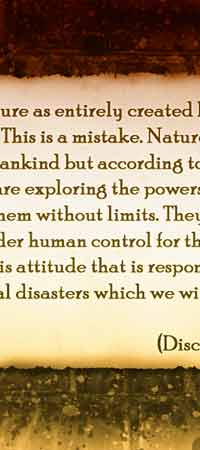 | 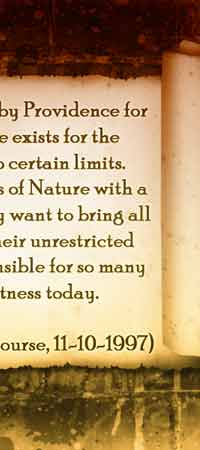 |
These days, trees are being felled all over the place, in cities, towns and rural areas too. I still remember how beautiful Bangalore used to be way back in 1950 when I saw it for the first time; it was so green and so full of trees, most of which were of the flowering type. Today, it is not easy to see trees in the city proper; when trees go, so do the flowers that the trees bear and with them also the bees.
One may say, “Look, that is the price one has to pay for urbanisation, which is an inevitable part of modernisation.” OK, let us accept that, even if it is painful. Now drive out of Bangalore city and you would see the influence of urbanisation extending out to thirty or forty kilometres. What it means is that tree cutting is restricted not only to the metro but extends over a much bigger region around it. Unfortunately village after village is growing rapidly, experiencing its own little wave of urbanisation, resulting in widespread destruction of the original green landscape. When you connect the dots, it all starts adding up; that is when the impact of massive urbanisation is felt in many different ways, the disappearance of bees being one example. From India, let us revert to America. If you go to the Mid-West famous for its huge stretches of corn fields, one does not find too many trees, which in turn means a bee problem.
All of the above brings me back to the point I started making earlier namely, that while God made sure that lower species would receive but also unconsciously pay back, where humans are concerned, God simply says the following [effectively that is]:
O man! I give you all the goodies you want, absolutely free. Use them for your good but in a responsible manner, without polluting, damaging and destroying what Nature has given you as a gift. And remember, to whom much is given, from him much is also expected! In as much as I have given you so much for your benefit, I also expect you to voluntarily “pay back” shall I say, your debt to Nature. Don’t ever forget that at the end of the day, there really is no free lunch. If you think you can fool Nature, well then expect a hefty bill. Mother Nature is extremely patient, but when aroused, her fury can be awesome!
Those are not exactly the words that Krishna used in the slokas that I quoted earlier, but Swami has been far more forthright in many of His discourses. Maybe I shall come back to all that some time in the future, but for the moment, I leave you to dig into Sai literature and find out all about that yourself.
 |
Let me next take you to the year 1943. World War II was nearing its peak then. While people were dying in large numbers in Europe not only on the battle fields but also due to bombing and in the gas chambers, India was free from direct war, although on the eastern frontier, the fighting was as close as Burma. There was, however, a huge famine in Bengal in which over a million people died in a little over a year. As a school boy, I remember being involved in collecting Famine Relief Fund in far away Karachi where I lived then. The Japanese had driven out the British from Burma, drastically reducing rice availability in the eastern part of India which used to import a lot of rice from Burma. Prices went up.
The rulers of the day, i.e., the British, made sure that price was controlled and that rice was available in the main cities, particularly Calcutta; but they hardly bothered about rural areas. The supply having dwindled substantially, prices went through the roof and the poor just could not afford to buy food; no wonder people soon began to die like flies. If you have the time, please go to the net and take a look at some of the horrifying images. The famine could have been prevented, but for the British, war was a greater priority than saving lives, even if it meant millions of them.
I am mentioning this just to give an idea of how indifferent and even callous people can be become, once self-interest grips them. It has always happened and continues to happen to this day, almost all over the world. Let me give a recent example.
 |  | 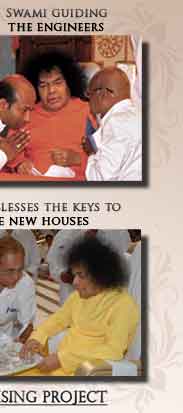 |
In September 2008, there was a disastrous flood in Orissa that swept away tens of thousands of homes; almost all of the people affected were the poorest of the poor. Orissa is a backward state but richly endowed with natural resources. Not surprisingly, there are several big corporations out there, engaged in mining and what not, raking in huge profits. But when disaster struck, these corporations hardly bothered; their headquarters were thousands of kilometres away, and insulated as they always were, they hardly bothered that tens of thousand of people were suffering.
It was different with Swami. When pictures of the seva done by the Sai Organisation during the flood were shown to Him, Bhagawan asked, “Are there not rich people in Orissa?” Senior devotees who were showing the seva photos replied, “Swami, the people of Orissa are mostly poor. However, many rich companies are operating there. They are all from outside.” “Did they not offer any help? After all, it is from the wealth of Orissa that they are making profits.” “No, Swami.” “No? This is a crying shame. They may forget the poor but Swami never does. Draw up immediately a program to build houses to provide permanent shelter to as many of the poorest of the poor as possible.” And that’s how the Orissa Housing Project came into existence.
Of course, rushing to the help of the poor and the afflicted has always been the way of Swami, as anyone who is familiar with the service aspect of the Sai Avatar would know. But unfortunately, so focussed are we on the so-called “miracles and experience” lore that we totally forget that Avatars come mainly to give a Message as well as to live it. Remember what Krishna told Arjuna? Let me repeat it here, for it is in context and has direct relevance. He said:
Partha, there is nothing at all in the three worlds that I am required or obliged to do, nor is there anything for Me to attain; and yet, I am constantly engaged in action.
If I were not to act, men would blindly copy Me and great havoc would result.
Alas, in this Kali Age, while God in human form is constantly setting examples of action, few pay serious attention. This brings me to my favourite topic namely Swami’s Hospitals. These days, the Hospital regularly features in some form or the other in almost all the dance-dramas that are performed in the Divine presence as a part of the Yathras or group pilgrimages. There is always a nice back drop and there are tear-jerking scenes, but not many take the trouble to go beyond the superficial aspects to understand how deep and profound is the Message that Swami is sending to humanity via His Temples of Mercy. In the present context, it is the following:
O man, ask not what God can do for you. God has already blessed you with so much and yet, not paying attention to it, you are constantly asking for more and more! Even so, I am always ready to bless you with all that you are asking for and perhaps more. But should you also not be asking what you can do for Me? I personally do not want anything, but since Sai is in all, you should do something for those who are less fortunate than you.
I am aware that there would be a flood of protests from readers telling me that I am living in a bubble, that I am totally ignorant about the huge amount of seva that devotees are doing all the time, all over the world, etc.
Dear reader, let’s not get into an accounting battle. We are here talking about God in human form who comes less frequently than the proverbial Blue Moon. He is not asking us to spend hours of our time doing something in the form of seva but conduct ourselves in such a manner such that a) there is a manifest transformation in our outlook, attitude and behaviour, and b) that we become true exemplars of His Message. Has He not said again and again that our lives should be His Message? Let’s be honest; how serious are most of us about this aspect of Bhagawan’s Command?
Agreed that not everyone can spend 24 hours on seva like Swami can; and quite obviously, one cannot ask for that either. But what surprises me is that even people who come here often know very little about the monumental contributions Swami has made to society, the like of which cannot be found in any record book. That of course should not come as a surprise since God always does His service work silently. But some do take His Message quite seriously, and since I made a reference to Swami’s Hospitals let me make a specific mention of just one doctor who can be held out as shining example of a True Messenger of Sai.
My example for the day shall be that of late Dr. Bhat, who became a legend in his lifetime. I don’t have enough time to say all that I would like to about Dr.Bhat; however, a full-length story about his life and invaluable contributions as well as service to Swami is under preparation, and you can read all the details there. But this I will say, and most emphatically too. Even when he was close to ninety and on a wheel chair, not only was Dr. Bhat’s brain as sharp as ever, but he also took a deep, detailed and personal interest in everyone of the difficult urology cases that came to the Hospital. Not merely that; time and again he would signal to me after evening Darshan and tell me, “You must drop everything and come tomorrow. I will show you a patient and tell you all about that amazing case, and how a life was saved through a most complicated surgery. It is all Swami’s Grace of course, but the story is just astounding; you must hear it.” That is how he would draw me to the Hospital many a time.
On other occasions he would, after Darshan was over and people were dispersing, open a plastic bag, show me a huge kidney stone, smile and then say, “Want to hear the story of this stone? Meet me tomorrow!” Whenever I went to the Hospital I would see him taking a round in the ward on his wheel chair, or talking to post-graduate students about the complexities of the surgery they would soon have to perform. He was so passionately committed to his work. Not only that; on many occasions, he has told me stories of courageous doctors of the nineteenth century, who took upon themselves complex diseases just in order to learn about it; that is to say, in the cause of advancing medical science, they were ready to become guinea pigs and suffer pain. Dr. Bhat’s commitment to his profession and his passion for service to the poor were most humbling and awesome to watch. The wonderful thing is that Swami’s Hospitals are full of such inspiring figures.
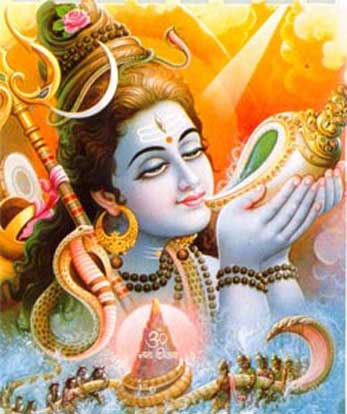 |
Now why did I bring the Hospital in? To highlight the point that even though He has no duties to perform, Swami engages in action all the time. What is the fall out? Plenty. Not only are tens of thousands of patients given a new lease of life every year but, more importantly, so many doctors are inspired to render service on a scale and at a level that they never dreamt of. That produces a chain reaction. Doctors inspire nurses both of whom inspire the sevadals. And believe me, seeing such loving and selfless service, many patients get inspired and come back to do seva in the hospital, besides engaging in seva wherever it is that they live. True, not all doctors serve in a purely honorary capacity; but the quality of service they render is far beyond the call of duty. By moving to private hospital, everyone of them can earn a fabulous salary; but they are not willing to. Why? Because over here, they can serve Swami. That’s exactly the point that both Krishna and Swami make. It is not whether you receive a salary or not that makes the difference. It is whether you make work into worship or not that decides whether you become dear to God or not. And believe me, work can be transformed into worship by everyone everywhere, without having to be a part of a particular Sai Organisation or unit, because God is Omnipresent, and any good work done anywhere can be directly offered to Him. That is what Krishna says and not me!
Since this is the month of Sivarathri, it is only appropriate that before I conclude, I make at least some reference to Lord Siva, especially since He is hailed as Tyagaraja or the King of Sacrifice. The scriptures say that once upon a time, the devas (angels) and the asurasKsheerasagara, as it is referred to. Their idea was to produce, through the churning process, Amrith or Divine nectar, which, when consumed, would confer immortality. However, the first thing to come out of the ocean was not Amrith that was sought but a deadly poison known as hala hala. (demons) together decided to churn the celestial Ocean of Milk or
Absolutely terrified, the devas and the asuras prayed to Lord Siva. Being the Most Compassionate One, Lord Siva appeared and in a moment understood what the problem was. Instantly, He scooped up the poison in the palm of His hand and swallowed it without a second thought; that is how the devas and the asuras were saved. It was an act of great sacrifice, and in recognition Siva came to be known as Tyagaraja. To complete the story, Lord Siva did not allow the poison to go down below the throat. Remaining frozen there, it created a dark blue spot on the neck, as a result of which Siva got the name Neelakanta or the Blue-throated One. It is said that this Puranic incident is a reminder of the fact that when people get together in large numbers to do good, in the beginning there is always some negativity, born of the ego that is widely present. The only way to get rid of it is for all to pray intensely, whereupon the Lord would intervene, fill people with love, wipe out all negativity and allow the good work to continue.
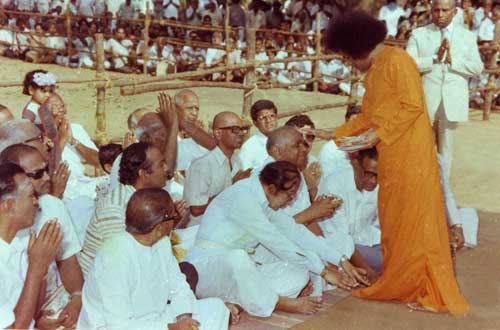 |
That brief reference to Lord Siva inevitably brings to my mind an incident that occurred long ago when I served briefly as the Vice Chancellor of Swami’s University; I guess it was around August or September of 1996 or it might have been even 1997; those days, Swami often used to call me inside the Interview Room to give all kinds of instructions. Vinayaka Chathurthi was just around the corner and Swami was telling me various things, when I noticed that the nail of the middle toe in one of the feet was black.
Alarmed I said, “Swami, there seems to be an injury to that toe.” Swami replied, “Yes, I stubbed My toe against the doorstep yesterday, and that’s what caused the hurt.” Unable to believe that such things could happen to God even if He was in human form I continued, “It must be very painful, Swami.” Swami looked me steadily in the eye for a moment and said, “Of course; what else do you expect?” Hesitantly I then said, “Swami, tomorrow we would be celebrating Vinayaka Chathurthi. As You come walking into the Sai Kulwant Hall, people would be falling all over You, grabbing Your feet to do Padanamaskar. Your robe is so long that the injured toe would be hidden from view, and it would be an utterly painful experience since you walk all over the Hall. Shall we quietly send the word to the public to refrain from rushing to take Padanamaskar?” Swami looked at me sternly and replied, “Don’t you dare do any such thing!” “But Swami….” “Shut up, and no buts. I have come for devotees and You are asking Me to do something that would pain them? My foot is not important, their joy is!”
It was seemingly a small incident, but that sort of thing happens all the time, although the world at large hardly knows about any of them. This particular incident reminded me of one sloka in the celebrated hymn SIVANANDA LAHIRI composed by the famous Adi Shankara. In translation that sloka reads:
 |
I recall a version of the translation cum comment that I read many years ago, according to which Adi Shankara not only complains in the above manner but also worries that Siva’s Feet, already tired after the Cosmic Dance, were being actually hurt by the crowns that the devas were wearing. What the commentator was indirectly hinting at was that when one goes to worship the Lord, one must first shed all traces of ego. Shankara asked the Lord, “O Lord, why are You bearing all this suffering?” Adi Shankara asked that question, but I do not know if he got a reply. I did and got the reply, though I am not even a speck compared to the great Adi Shankara! You know, sometimes, the Kali Age is not all that bad!
Thanks for listening and God bless.
Offering this talk to Bhagawan as usual, I bring it to a close. Jai Sai Ram.
TEXTO TOMADO DE: http://media.radiosai.org/Journals/Vol_09/01MAR11/03-musings_sacrifice.htm


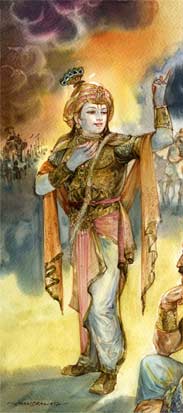
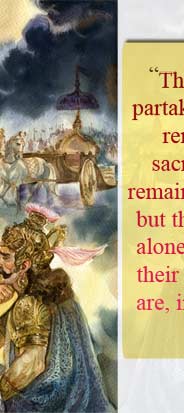
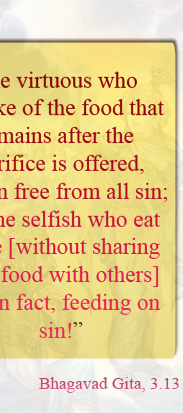
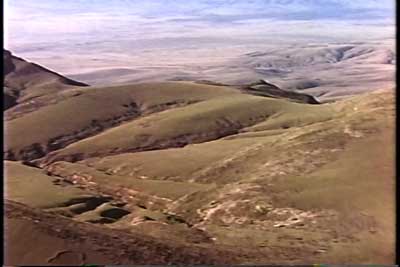

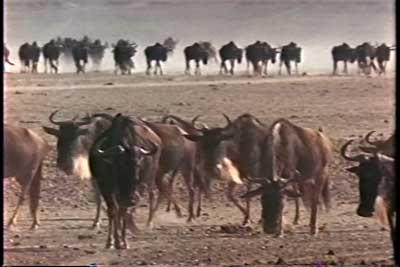
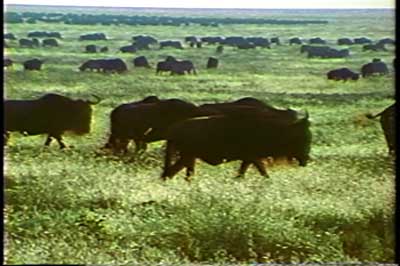
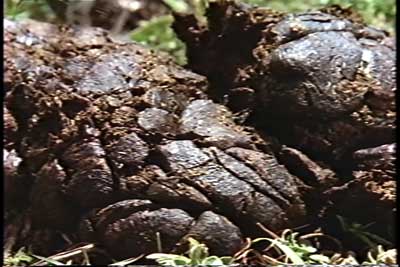

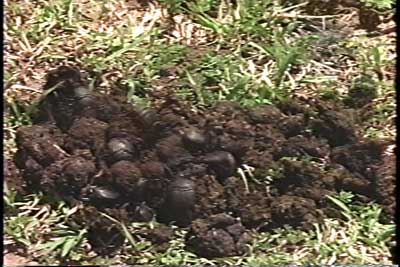

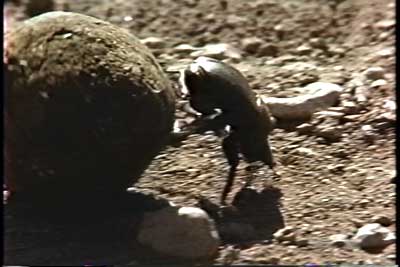
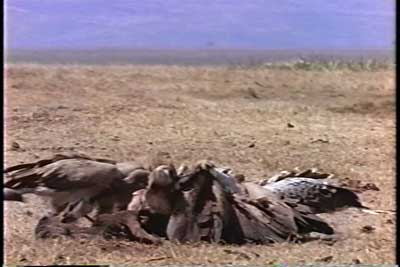
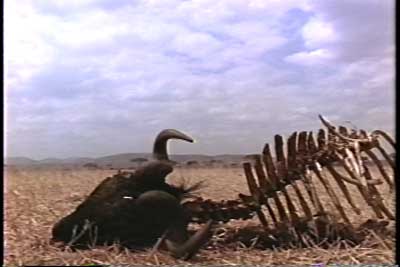






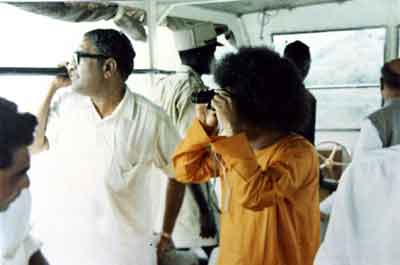

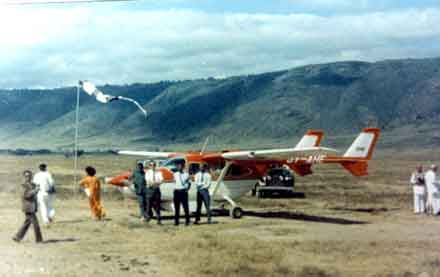
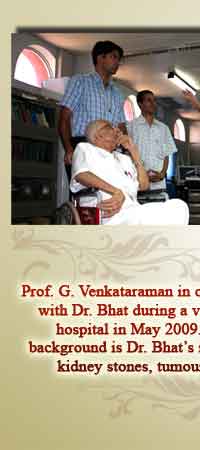
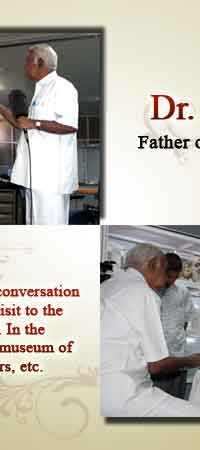













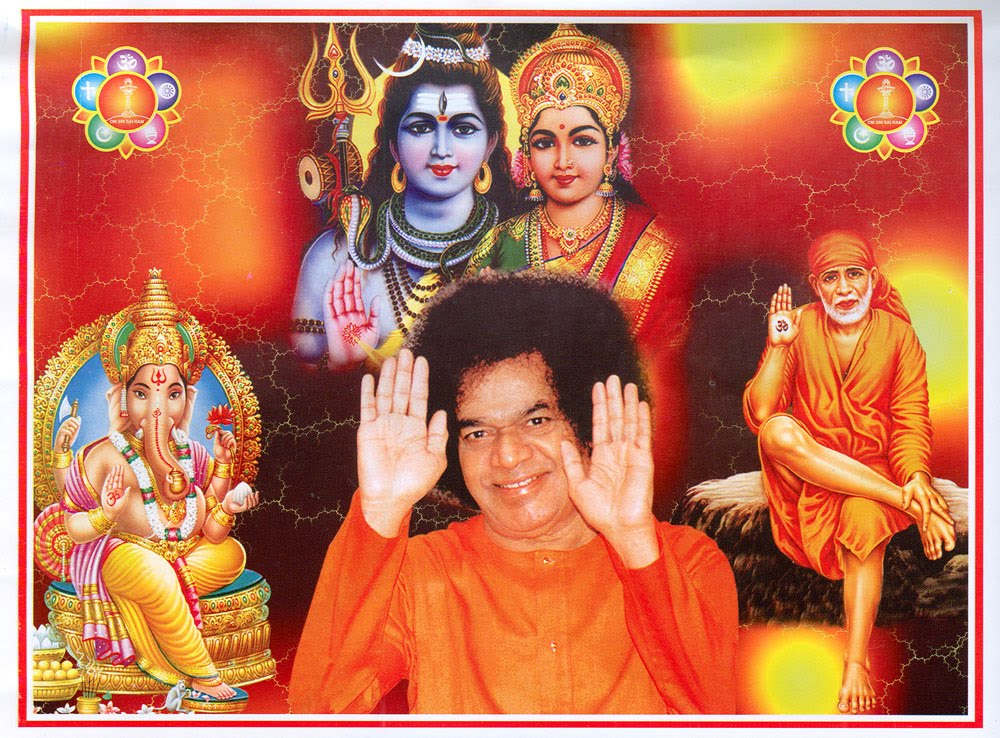






No hay comentarios :
Publicar un comentario